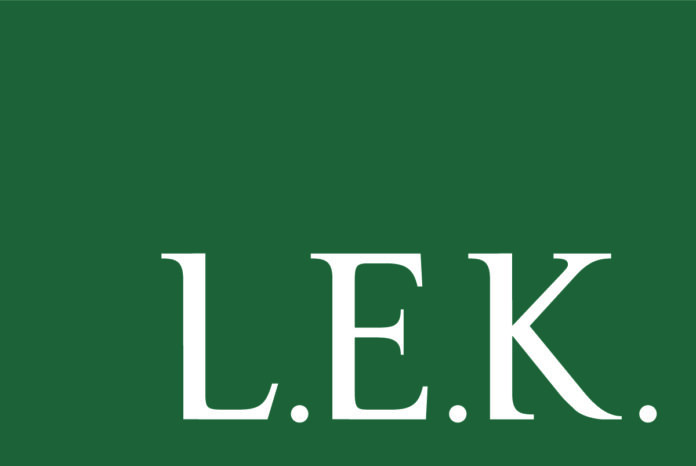Jakarta, 23 February 2021 – According to L.E.K. Consulting’s latest insights, Indonesia’s e-groceries market is nearing a turning point in drivers of penetration. In the broader Asian context, operators in the space have enjoyed success in markets like China and South Korea.
COVID-19 is likely the catalyst that leads to a step-change in Indonesia’s e-grocery penetration that could be worth USD 5B-6B Gross Merchandise Value (GMV) by 2025, with possible upside risk. Against the backdrop of developing trends in the market, the pandemic likely propelled adoption of online groceries by 2-3x in 2020. With ~65% of the population lying below the age of 44 years and an urban population demonstrating an impulsive buying behaviour, favourable customer demographics is a key contributor to the success of e-groceries penetration. The report further delves into customer demographics, explaining that ~65% of buyers opt for convenience – a salient feature of e-groceries. Digital enablement is also an underlying driver for its growth as 96% of the population has a mobile phone and 76% can access the internet.
“As observed in other Asian markets like China and South Korea, younger shoppers are more likely to make online purchases and with improving internet access and digital enablement, this savvy consumer type, has bolstered demand for online groceries. These markets have reached critical mass of 5% penetration or more. With similar trends observed in the dynamic Indonesian economy, the e-grocery market is poised to grow further accelerated by the pandemic” explained Manas Tamotia, head of the technology practice at L.E.K. Consulting’s Southeast Asia office.
Moreover, e-commerce penetration in Indonesia hit 6% in 2019, as compared to less than 1% in 2014. On the supply-side, a range of players and models have emerged to meet consumers’ needs. Across the offline-to-online model, online market model and aggregator model, prominent names like Carrefour, Alfaonline.com, happyfresh and more have stimulated demand.
A global consultancy firm, L.E.K.’s research points out that modern retailing is nascent in Indonesia relative to other markets, nonetheless, it is a USD ~20B industry with USD ~9B spent in hyper- and supermarkets. As COVID-19 catapults global sectors into the digital era, it is highly likely that e-groceries take up more share in the market in the coming years, given the higher prevalence of technology and e-commerce adoption today.
Click here for the full report.







